
Brushing & Flossing Twice A Day Keeps Bad Breath Away
Brushing is very important for your teeth and your health. Most people regularly brush their teeth twice a day – before bed and in the morning. Brushing your teeth reduces plague build up and tartar. It also gives you healthy breath and kills that unpleasant smell. While brushing, use circular motions, up and down strokes, and don’t forget the back teeth. Many people are unaware of the fact that flossing your teeth twice a day is as important as brushing. Brushing cleans the outer surface of the teeth and gums, while flossing is an inter-dental cleaner. It cleans the surfaces between the teeth and also pulls out the tiny food particles stuck between your teeth. These tiny food particles are the main cause of bad breath.
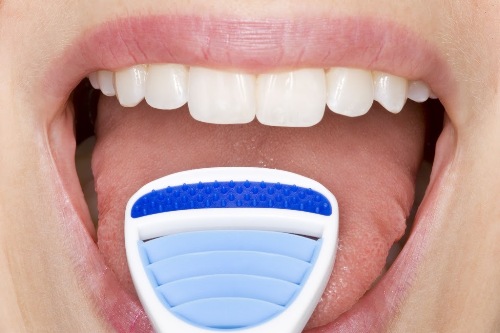
Scraping Your Tongue Is As Important As Brushing Teeth
The yellow or white coating of the tongue is also a reason for bad breath. This yellow white coating is the accumulation of bacteria and food debris. Tooth brushing and flossing cannot erase this coating, so you need to scrap your tongue regularly. Scraping your tongue regularly keeps your tongue clean and your breath fresh. Scraping your tongue regularly doesn’t only enhance your taste but also prevents mouth from drying. It is an easy and quick method to detoxify your gastrointestinal tract. It removes germs and bacteria. Dentists recommend scraping the tongue daily as it is a part of daily oral hygiene.
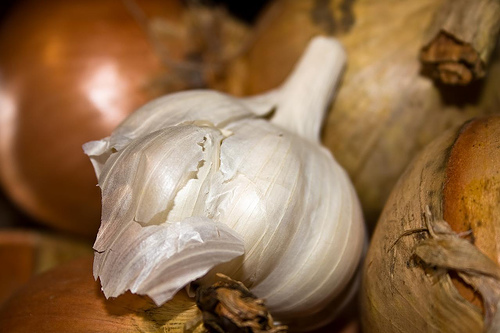
Say No To Garlic & Onions
You might be quite familiar with the smell of garlic or onion. If you want to have a pleasant smell from your mouth, it is a terrible idea to eat garlic or onion in any way. When garlic gets inside your gastrointestinal tract, it produces sulfur-containing gas. A sulfur gas named AMS (Allyl Methyl Sulfide) is the gas that cannot be metabolized by liver or the intestine. This is the reason this gas goes back and is released in your mouth. Try to keep yourself away from garlic and onions, which will cause you nothing but disappointment.
- Important notification about information and brand names used in this slideshow!
- Photo courtesy of Iberian Proteus (formerly known as Alatryste) by Flickr : www.flickr.com/photos/alatryste/2260797359/
- uk.answers.yahoo.com/question/index?qid=20080514211651AAUdkiI

Quit Smoking – The Main Cause Of Halitosis And Cancer
Smoking, as we all know, is injurious to health. There is a special reason why tobacco smoking causes halitosis. When you smoke a cigarette, it leaves smoke particles in lungs and throat. Not only cigarettes, any tobacco product does the same. Due to these smoke particles the smell of freshly smoked cigarette lingers in the lungs for several hours. The chemicals in tobacco smoke remain in the mouth for a long time. These chemicals are secondary causes of bad breath. Tobacco smoke contains more than 60 aromatic hydrocarbons. These chemicals do give bad breath but the worst part is that most of these hydrocarbons are carcinogenic – meaning they have the potential to cause cancer.
- Important notification about information and brand names used in this slideshow!
- Photo courtesy of Q Family by Flickr : www.flickr.com/photos/dasqfamily/699188879/
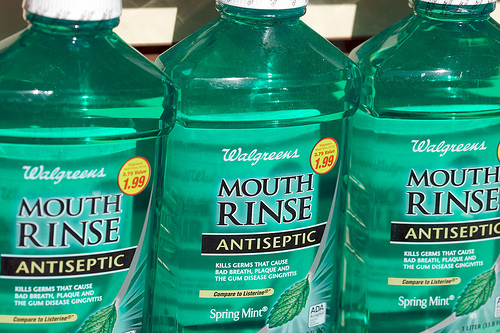
Mouthwash Is The Key
Brushing and flossing your teeth twice a day is not enough if you really want to have a fresh breath. Flossing and brushing is vital for creating healthy gums and teeth but mouthwash plays a major role in the equation. Dentists encourage people to make mouthwash part of their daily routine. It doesn't only give you fresh breath but also lowers the risk of many common issues such as tooth decay, plaque, oral bad odors, and gingivitis (gum disease). Use mouth wash before you brush. It loosens food particles stuck between your teeth, and its anti-septic action kills germs and harmful bacteria present in your mouth and throat.
- Important notification about information and brand names used in this slideshow!
- Photo courtesy of Jeremy Brooks by Flickr : www.flickr.com/photos/jeremybrooks/3446832652/

Skip After-Meal Desserts
Sugar lurks almost everywhere adding sweetness to everything. The after-meal desserts that you usually take are quite harmful for you and your teeth. In order to stay healthy and away from bad breath you should quit these desserts. It doesn't mean that you should cut desserts off completely. Just be careful with what you eat. Sugar is remarkably harmful for your teeth. Is plays a major role in formation of cavities. These cavities produce bad breath. Bacteria found in the mouth live on these sugar traces that are left in your mouth after a dessert. So quit taking after-meal desserts or at least make sure you do not indulge very often.
- Important notification about information and brand names used in this slideshow!
- Photo courtesy of Lee Coursey by Flickr : www.flickr.com/photos/leeco/5121063637/
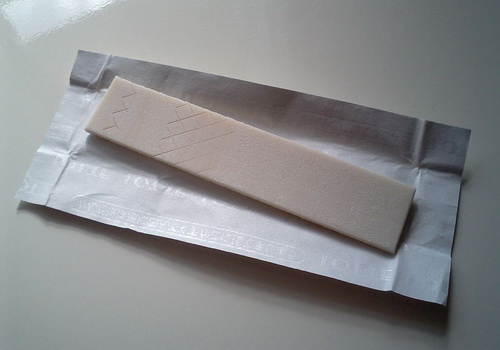
Sugar-Free Chewing Gum
Chewing gum is a unique substance that can help eliminate halitosis. It has great effects on oral tissues. Some studies have shown that sugar free chewing gum doesn't only contribute to plaque reduction but also shows beneficial effects on oral hygiene, gingivitis, and calculus. These chewing gums promote secretion of saliva from salivary glands which can re-mineralize the teeth. Saliva contains re-mineralization ions and bicarbonates that buffer the acids produced from plaque. Sugar-free chewing gums also prevent caries – crumbling and decay of teeth. This way, these chewing gums greatly decrease the chances of any unpleasant odor from your mouth.

Beware Of Dry Mouth
Dry mouth is one of the primary causes of bad breath. Xerostomia is a medical condition in which patients have a dry mouth with no saliva. Saliva is extremely important for us because it moistens and cleanses our mouth by neutralizing acids produced by plaque. It also washes away dead cells that may have accumulated on the tongue, inner cheeks, and gums. If these acids are not removed, they force the cells to decompose and cause bad breath. To prevent a dry mouth, dentists advise to have a glass of water every 2 hours. Chewing gum is also known to keep your mouth from drying, as it promotes saliva production.
- Important notification about information and brand names used in this slideshow!
- Photo courtesy of lengtarang by Photobucket : media.photobucket.com/user/lengtarang/media/drymouth.jpg.html?filters[term]=dry%20mouth&filters[primary]=images&filters[secondary]=videos&sort=1&o=2
- www.webmd.com/oral-health/guide/bad-breath
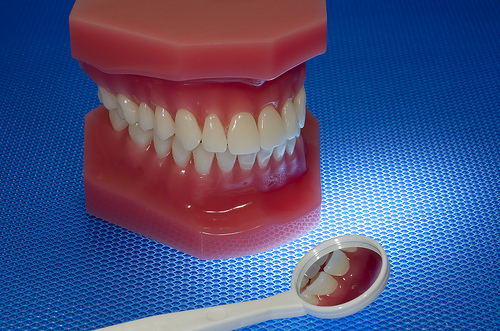
Don’t Forget About Your Gums
Gums are a vital component of our mouth, and protecting your gums is as important as protecting your teeth for a perfect smile. Gingivitis, an inflammation of the gums, is a common disease of the gums that shows up if you don't care for your gums. It causes the destruction of the tissues that surround your teeth which can cause halitosis in advanced stages if left untreated. Vitamin D is known to kill bacteria that attack the gums. Chewing gum also helps the gums. Dentists recommend drinking more water to keep your mouth from drying. Water is very beneficial for your gums too. Healthy teeth and gums almost guarantee a fresh breath.

Visit Your Dentist Every 6 Months
The American Dental Association recommends paying a visit to your dentist every 6 months. This is because regular dental check ups are essential for the maintenance of healthy teeth and gums. During a regular visit, checking your teeth for decay is just one aspect. Your dentist will likely examine your mouth for any signs of oral cancer, vitamin deficiencies, and diabetes. Many dentists pay special attention to tartar and plaque. All these examination are very useful not only for your oral health but also for pleasant breath. The dentist will usually give you tips after the examination to help you stay away from halitosis.








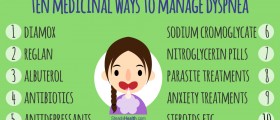


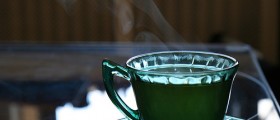






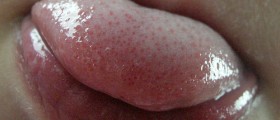
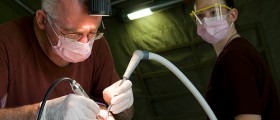


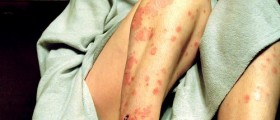


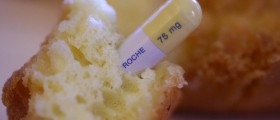

Your thoughts on this
Loading...